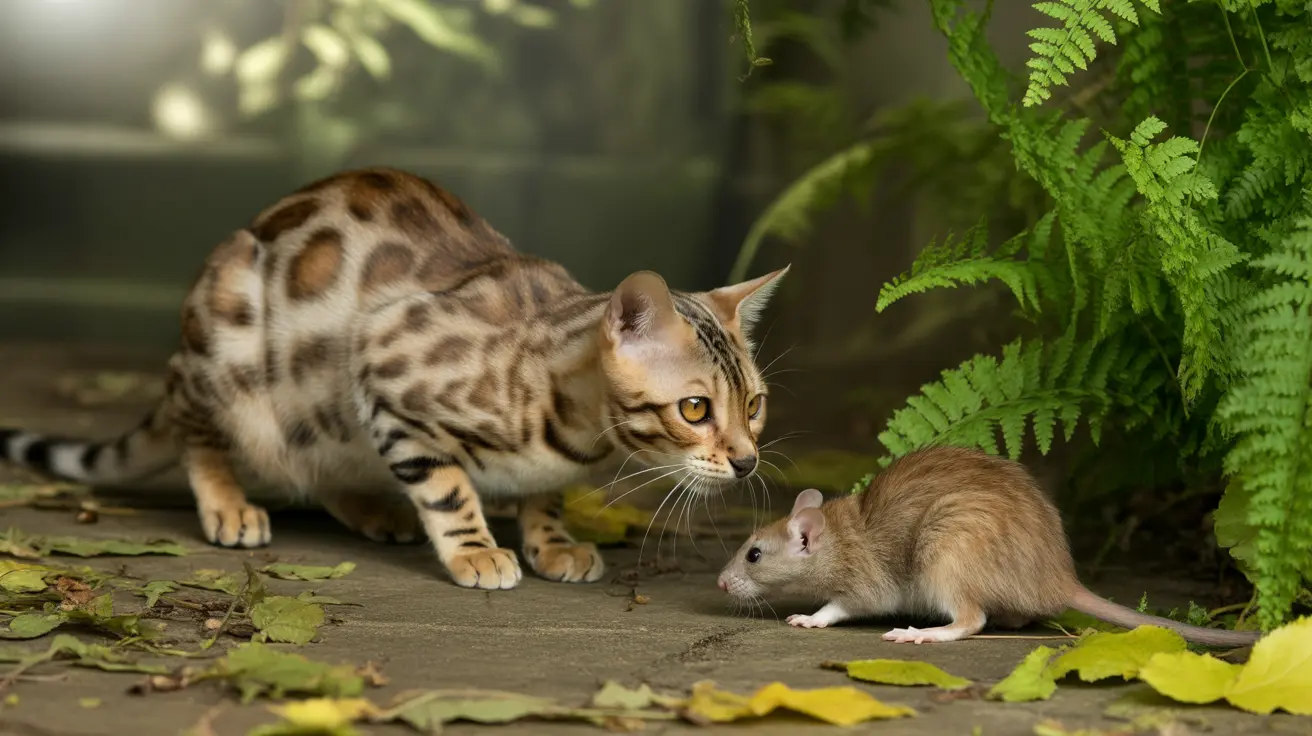Natural Hunting Instincts of Cats
Cats are hardwired predators, carrying hunting instincts passed down from their wild ancestors. Even well-fed domestic cats maintain these instinctual drives, which explain why they pursue rats and other small prey regardless of hunger.
These hunting behaviors typically involve several stages: stalking, capturing, killing, and potentially consuming the prey. Many cats engage in what appears to be "play" with their catch, but this behavior actually serves to tire out the prey and ensure it's safe to approach.
Eating vs. Hunting: What Actually Happens
While all cats may hunt rats, not all will eat them. Domestic cats with regular access to quality cat food typically kill rats without consuming them. This behavior stems from their instinct to hunt rather than genuine hunger.
Feral cats and strays, however, are more likely to eat their prey out of necessity. When they do consume rats, they often start with the head and may eat the entire animal if hungry enough.
Health Risks and Concerns
When cats eat rats, they expose themselves to several serious health risks:
- Parasitic infections (roundworms, tapeworms)
- Bacterial diseases
- Secondary poisoning from rodenticides
- Potential intestinal blockages
- Toxoplasmosis
These risks are particularly concerning in urban environments where rats may carry more diseases or have been exposed to pest control chemicals.
The Effectiveness of Cats as Rat Controllers
Despite their reputation, cats aren't always the most effective rat control solution. Most domestic cats prefer smaller prey like mice and may be intimidated by full-grown rats. Studies show that while cats can deter rats, they rarely make a significant impact on established rat populations.
Environmental factors and the availability of food sources play a bigger role in rat control than the presence of cats alone.
Frequently Asked Questions
Do domestic cats actually eat rats or just kill them?
Most domestic cats prefer to kill rats rather than eat them, especially if they're well-fed with regular cat food. However, feral or hungry cats are more likely to consume their prey.
What health risks can cats face if they eat wild rats?
Cats can contract parasites, bacterial infections, and suffer from secondary poisoning if they consume rats. They may also face risks from toxoplasmosis and potential intestinal blockages.
Are cats effective at controlling rat populations around homes?
While cats may deter some rats, they're not typically effective at controlling established rat populations. Most domestic cats prefer smaller prey and may avoid confrontations with adult rats.
Why do cats sometimes play with or present dead rats to their owners?
This behavior is instinctual and may serve multiple purposes: ensuring the prey is safe to approach, practicing hunting skills, or attempting to "teach" hunting to their human family members.
How can I keep my cat safe from poisons or diseases when they catch rats?
Monitor your cat's outdoor activities, keep them up to date on preventive medications, and consult with your veterinarian if your cat regularly hunts rodents. Avoid using rodenticides in areas your cat can access.
Conclusion
While cats naturally hunt rats due to their predatory instincts, whether they eat them largely depends on circumstances such as hunger and learned behavior. For the safety of your pet, it's best to discourage the consumption of wild prey and provide proper nutrition through commercial cat food.
If you're dealing with a rat problem, consider professional pest control services rather than relying solely on your cat's hunting abilities. This approach will be more effective and safer for your feline friend.






